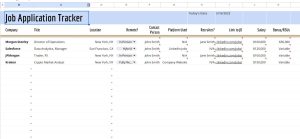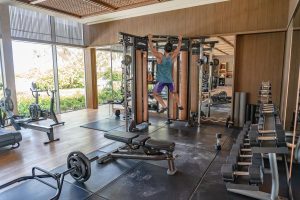Recently, there has been an influx of American citizens that have proclaimed their desire to move to South Africa. While many may be saying this due to political unease or even in jest, there are many who truly want to pack up and move to the land of beauty and contrast. For those that have set their sights on this beautiful country and want to begin taking steps to relocate, this is for you.
If you want to immigrate to the popular country of South Africa, you are going to need to adhere to a few simple rules of immigration and one of the most important is to obtain a permanent residence permit. With a permit, you can stay in South Africa indefinitely and will hold all the same rights as any other citizen. Keep in mind that South Africa is much more than a fun destination where visitors can take a safari and the country hosts a wealth of incentives for residents including beautiful scenery, excellent work opportunities and some of the friendliest people in the world.

If you’re looking to live in Johannesburg, make sure to read my Ultimate Guide to Living in Johannesburg that touches on everything from house-hunting, to gyms.
Your South African Residence Permit
In order to move to South Africa, you’ll need a resident permit of some sort. To get the residence permit, you first must make an appeal to the Minister of Home Affairs to let them know why you believe you should be considered and why they should not consider you as a person who is prohibited from coming to South Africa. Just so you are aware, you may not come to South Africa if you are a criminal with a warrant against you, you have an infectious disease or you have been deported from South Africa at any time in the past or belong to any criminal organization. You also need to prove you can fully support yourself so that you will not become a burden on the public to support you.
Once the Minister of Home Affairs declares that you are suitable to enter the country or remain in the country, you may then apply for a residence permit. For as foreigner, you will most likely need to apply for a residency on other grounds permit which means you have been offered employment in the country, plan to open a business or have outstanding work skills that the employment market in South Africa would find beneficial. For a direct residency permit, you need to have been living in South Africa for at least four years prior to applying.
Once you file the application for a residency permit, you also need to supply the following important information:
- Fingerprints
- Marriage, Death or Divorce Certificate if necessary
- Custodial Paperwork if you have children with you
- Adoption Paperwork if adopting or have an adopted child
- Temporary Residence Permit if you already reside in South Africa
You must also pay your non-refundable fee for the permit and will need to pay for each family member if you have your family with you. If you have not yet left for South Africa and want to immigrate, you can place an application at the nearest South Africa Abroad office in the United States. Your permit is indefinite but you will need to apply for permanent residency within one year of entering the country if you plan to stay permanently.

Cost of Living in South Africa
South Africa, while not the cheapest country to live in, can be substantially cheaper than most of your first world western countries. However, wages are generally lower which balances out the cheaper cost of living. In addition, the city you choose to live in will have a huge impact on your finances. Cape Town and Johannesburg are considerably more expensive than cities like Durban or Pretoria. Nevertheless, for those that plan to move to South Africa, getting a good grasp on the cost of living and your finances is key to making a move to South Africa. For a more detailed breakdown of cost of living, click on the below links for Johannesburg and Cape Town.
Driving Around South Africa
When you need to get around in South Africa, there are quite a few private bus lines available, but you need to know that buses in South Africa can be very packed and will often take many hours to arrive at a destination due to the stops they must make. You can also opt to take a train but trains do not run to all areas of South Africa. To get around easily in South Africa, your best bet is to buy a car. Cars a big part of South African life, and people here are a bit obsessed with the cars they drive. There are no shortage of new and used cars for purchase in South Africa. Read more about how to buy and sell cars in South Africa.
Importing a car to South Africa
Bringing your own car to South Africa can be a lot of work. To do this, you are going to have to contact an international auto shipper such as A1Auto Inc. who can work closely with you to get the car through customs and cleared with no issues.

Some people enjoy bringing a personal car with them so they can drive. Since South Africa is such a large country, you may prefer to drive on your own when you want to travel. Imported cars need to be new, but if you can gain a permit, you may be able to bring in a used car. Only one personal car per family is allowed entry. The government heavily regulates imports to keep the sales up at the auto manufactures within South Africa.
Seldom ever will a foreigner be allowed to get a permit to bring a used car in but returning citizens and those with permanent residency can bring them in. You can also bring in classic cars, race cars and cars that have been inherited. As a foreigner with a permit to import a car, you will need to provide your passport, South African residency permit, motor vehicle registration and proof of work or study.
Bringing Your Household Goods
To bring your household goods and other personal property to South Africa, it is vital that you hire company that has the necessary experience with moving services to South Africa so they can easily get everything shipped and delivered quickly. A good international moving company will be able to assist with all import/export regulations, port services, storage, fees and taxes and all other necessities during a move to South Africa. You must make sure the company offers valid insurance during the move overseas so you will know that your property will be safe from damage during shipment.
It is always a good idea to keep your personal items under lock and key during shipment to make sure they stay secure during travel. To ship your household goods and have them pass customs, you need to provide the following information:
- Passport
- Work Permit
- Keys for Trunks or Locked Items
- Residence Permit
- Residence Visa
- Customs Forms DA 304 and P1 160 will need to be given to customs
- Employment Letter
- Inventory List written in English
- Total Weight and Measurement for all goods
You will be required to arrive in South Africa no less than 10 days prior to your shipment of household goods arrival and you must be physically present at the port when everything arrives so you can be with them to clear customs.
South Africa has a climate that differs from one area to the next, but generally it is semi-desert in the inner areas and a Mediterranean climate near the coast and Cape Town. You will want to pack accordingly for the area of the country you will live or for areas you plan to visit while in South Africa. Winters are usually cold and dry while summers tend to have plenty of rainfall and humidity.

Once you arrive in South Africa you will quickly see that this beautiful country has a very diverse population and that with nearly 50 million people, you are going to find a wide array of languages, beliefs and cultural traditions. Be sure to take advantage of your new home by meeting new people, attending social gatherings and getting to know the country one day at a time. Once you arrive, you will be able to see how wonderful South Africa truly is, and chances are, you will feel at home immediately.










I’m 71. I want to move from the US (as a retired widow) to Eshowe to join my family. This is my mother’s sister and my cousins.
What is the first thing I should do?
I’d also like to take my household goods.
I may volunteer in an orphanage or teach school part time.
Hi there, Id make sure you can legally stay there whether this is a retirement visa or something along the likes. After that, it’s pretty easy to find an international mover that will take all your stuff there. Prepare to pay up for this though!
Hi John,
I am enjoying reading your suggestions and recommendations on South Africa! My family and I are moving to Johannesburg this summer…or winter there I guess, and I have some questions about our American appliances and electronics I am hoping you can shed some light on. Just doing some google’ing I know that South African outlets run on 230v as opposed to the 120v for America. Would you recommend getting all new kitchen & bath appliances once in SA? Also what about larger electronics like our TV’s and charging our laptops/tablets? Any advise would be much appreciated! Thanks!
Hi Tiffany, good question actually. I didn’tk now anything about different voltages when I first moved there and proceeded to promptly fry my Xbox. Certain electronics will need a current converter and others don’t. Your laptop and tablet for example are totally fine but your TV should require one. If you have very high wattage electronics like a strong blender or hair dryer, these will be best stored stateside as it’s not worth the risk. As for kitchen stuff, I can’t comment on that as I didn’t move anythign down of that nature. Many of the apartments are furnished in SA so I never bothered with this. Hope that helps!
Hey John, I’ve been planning on moving to the Cape Town area (my bf lives in PTA) for about a year now to study at UCT, and I’m planning on finally making the move within a year. What’s your advice in terms of how much to save, how long to prepare, etc.? I currently work online as Webcam Model, so my job can kinda “go with me” anywhere I go in the world…
Hi Alyssa, I dont’ think there is any one form fits all for Cape Town. You can see the cost of living in Cape Town is not the cheapest but it’s also not super expensive either. If you’re going for studies, then your visa should be taken care of so the hardest part is out of the way. Plus simce you have a remote working job, you don’t need to worry about finding a job which is nice. I would just make sure you’re sorted as far as your banking goes, so you’re able to transfer money to a South African bank account (if need be) to pay rent. Everywhere takes credit cards so you don’t need to worry abotu cash as much.
John, c’mon! lol I have been trying to get in touch with you and I don’t know how. I am Venezuelan/American living in Cape Town doing his masters here at UCT.
Hey Jean, I’ve moved away from South Africa already! Sorry and enjoy Cape Town which shouldn’t be too difficult!